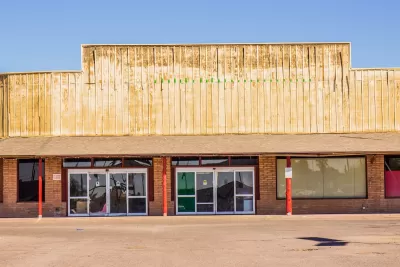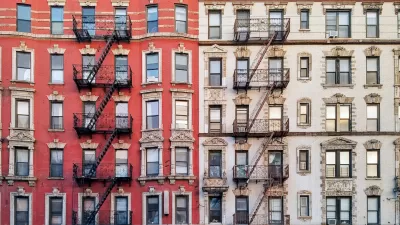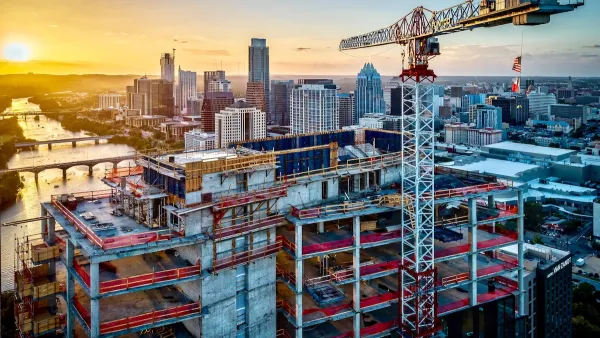The year saw some encouraging developments in housing and zoning policies that could alleviate the housing crisis and offer renters and homebuyers more diverse options.

In a piece for Vox, Rachel Cohen describes six housing policy ideas from 2024 that could make an impact on the housing crisis.
Describing herself as “cautiously optimistic” about each of them, Cohen begins with the idea of converting vacant malls — particularly strip malls — into housing, a concept that is catching on as retail increasingly moves online and commercial vacancies rise. According to Cohen, “Strip malls in particular offer some unique advantages for developers because they usually come with big empty parking lots that make it easier to build. Recent research estimated that converting just the top 10 percent of strip mall candidates could create more than 700,000 new homes across the country.”
Other positive developments include switching to cash assistance instead of vouchers for people receiving housing assistance, which can cut down on bureaucracy and help people access housing sooner, and using adaptive reuse to convert office buildings into “affordable, dorm-style housing.” Cohen also praises the ‘Yes in God’s Backyard,’ or YIGBY, movement, in which churches and faith communities are taking on the task of building housing on their properties.
For Cohen, “The housing affordability challenges ahead are real, but a lot can change for the better when hard-working people pay attention.” But journalism is about facts and follow-through: “We’re going to keep watching how these ideas develop and what implementation actually looks like.”
FULL STORY: 6 standout housing policy ideas from 2024

Planetizen Federal Action Tracker
A weekly monitor of how Trump’s orders and actions are impacting planners and planning in America.

Maui's Vacation Rental Debate Turns Ugly
Verbal attacks, misinformation campaigns and fistfights plague a high-stakes debate to convert thousands of vacation rentals into long-term housing.

Restaurant Patios Were a Pandemic Win — Why Were They so Hard to Keep?
Social distancing requirements and changes in travel patterns prompted cities to pilot new uses for street and sidewalk space. Then it got complicated.

In California Battle of Housing vs. Environment, Housing Just Won
A new state law significantly limits the power of CEQA, an environmental review law that served as a powerful tool for blocking new development.

Boulder Eliminates Parking Minimums Citywide
Officials estimate the cost of building a single underground parking space at up to $100,000.

Orange County, Florida Adopts Largest US “Sprawl Repair” Code
The ‘Orange Code’ seeks to rectify decades of sprawl-inducing, car-oriented development.
Urban Design for Planners 1: Software Tools
This six-course series explores essential urban design concepts using open source software and equips planners with the tools they need to participate fully in the urban design process.
Planning for Universal Design
Learn the tools for implementing Universal Design in planning regulations.
Heyer Gruel & Associates PA
JM Goldson LLC
Custer County Colorado
City of Camden Redevelopment Agency
City of Astoria
Transportation Research & Education Center (TREC) at Portland State University
Jefferson Parish Government
Camden Redevelopment Agency
City of Claremont





























